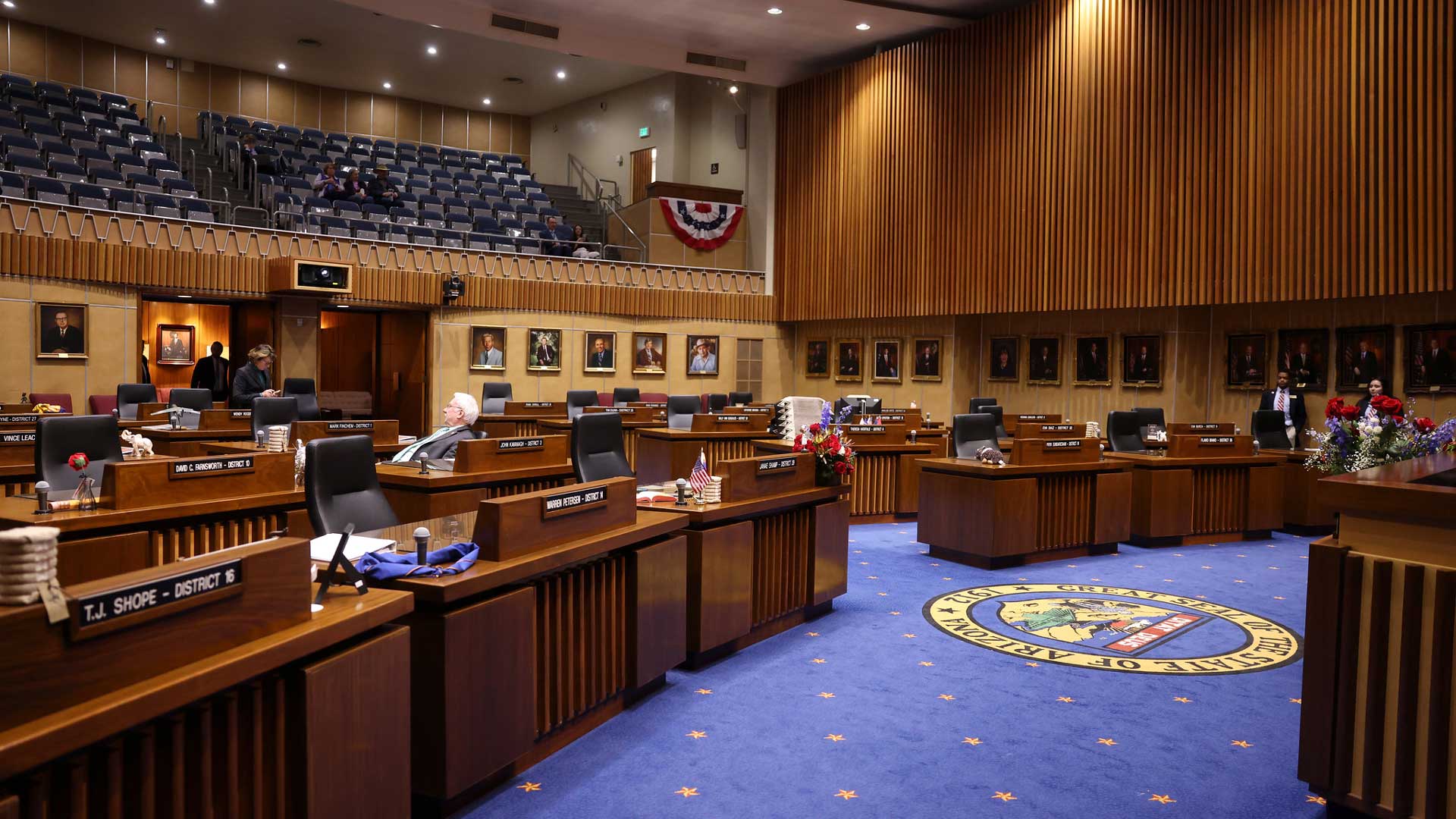 The floor of the Arizona State Senate at the Arizona State Capitol building in Phoenix, Arizona. January 15, 2025
The floor of the Arizona State Senate at the Arizona State Capitol building in Phoenix, Arizona. January 15, 2025
Governor Katie Hobbs promises to veto any bill that reaches her desk until the legislature finds a bipartisan way to fund the Division of Developmental Disabilities (DDD).
“The inaction of a few, extreme Republican lawmakers is unacceptable, and business as usual cannot continue until Arizonans with developmental disabilities and their caretakers have the certainty they need,” Hobbs wrote.
Arizona needs $122 million to continue funding Medicaid services through the Division of Developmental Disabilities. If funding is not increased, services will be cut back for over 59,000 Arizonans who have disabilities like cerebral palsy, autism, and Down syndrome.
However, some Republican lawmakers do not want to fund the program without implementing changes, like limiting certain DDD services. Last week, Republican House Speaker Steve Montenegro accused the Hobbs administration of financial mismanagement after they expanded DDD programs, like the Paid Caregiver Program, without legislative approval.
The Paid Caregiver Program began in 2020 under former Republican Gov. Doug Ducey as a temporary fix to a worsening caregiver shortage during the COVID-19 pandemic. It became permanent last year after the Hobbs administration secured federal approval. However, as of April 1, federal funding no longer fully covers the program, leaving the state responsible for nearly a third of its cost.
If Republicans continue to push their version, the Paid Caregiver Program will eventually scale down to 20 paid hours a week for parents who must care for their children who have a disability.
Callie Walling, a mother of two boys with autism who relies on the program, told the state senate’s appropriation committee that it’s already hard to find care, and cutting it further would be devastating.
“Whether I'm the one providing care (or) someone else is, the cost to the state is the same,” Walling said. “The only difference is I know my eight-year-old son will never be left sitting in a soiled diaper under my care. This isn't about convenience, it's about survival, safety, dignity.”
Despite testimonies, both the state House and Senate Appropriations committees voted against an amendment that would fund the program without changes. Senator Mark Finchem was one of the republicans who voted against the amendment, but says that does not mean he accepts the bill as is.
“I do recognize that we've got to have guardrails,” he said. “But at the same time, when we have parents who are essentially foreclosed from having outside employment, we've got to strike a balance there.”
The supplemental funding bill would also require legislative approval for any Medicaid waiver requests before they’re sent to the federal government and require state agencies to report how they plan to use federal funds, including when that funding is expected to run out.
GOP leaders say Hobbs’ veto threat amounts to “political blackmail.”
“She created this crisis by foolishly expanding the DDD program without legislative approval or funding in place, and now she’s throwing a tantrum because the Legislature is doing the responsible thing: funding services while putting guardrails in place to keep the program from collapsing,” Montenegro said.
Hobbs’s tactic is not new; Republican governors Jan Brewer and Doug Ducey also withheld bill signings until they got a budget they could support.
“Their introduced proposal is unserious and a complete nonstarter…As I have been from day one, I am ready to negotiate with anybody who is willing to discuss a serious supplemental funding bill.”

By submitting your comments, you hereby give AZPM the right to post your comments and potentially use them in any other form of media operated by this institution.